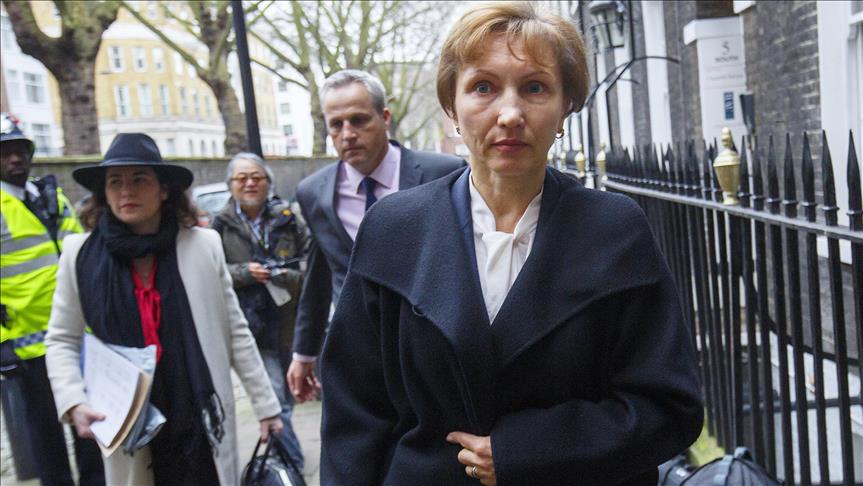UK minister slams 'Russian role' in Litvinenko poisoning
Theresa May says radioactive poisoning breached international law, while Russia denounces British judge’s findings
 Marina Litvinenko (R), widow of murdered former Russian spy Alexander Litvinenko, is seen before her press conference at Matrix Chambers in London, England on January 21, 2016. (Tolga Akmen/AA)
Marina Litvinenko (R), widow of murdered former Russian spy Alexander Litvinenko, is seen before her press conference at Matrix Chambers in London, England on January 21, 2016. (Tolga Akmen/AA)
LONDON
Russia’s alleged involvement in former spy Alexander Litvinenko’s London assassination is "deeply disturbing", U.K. interior minister, Theresa May, has said.
In a House of Commons statement Thursday, May announced arrest warrants had been issued for the two main suspects and their assets frozen, as she criticized Russia for failing to cooperate with the investigation into the murder.
Her comments came hours after a British judge said Litvinenko’s killing was "probably" approved by President Vladimir Putin and his country’s intelligence service, the FSB.
Russia said the implication it had been involved was "absolutely unacceptable".
The former spy died of radioactive poisoning in November 2006 after drinking tea at a London hotel contaminated with the substance polonium-210.
"It goes without saying that this was a blatant and unacceptable breach of the most fundamental tenants of international law and of civilized behavior," May said in her Commons statement.
"But we have to accept this does not come as a surprise. The inquiry confirms the assessment of successive governments that this was a state-sponsored act."
She added: "Russia's continued failure to ensure the perpetrators of this terrible crime can be brought to justice is unacceptable."
The long-awaited report by British judge Robert Owen into Litvinenko’s murder, published Thursday morning, found that the assassination was carried out by two FSB agents, Andrei Lugovoi and Dmitri Kovtun.
Their use of polonium-210 was "at the very least a strong indicator of state involvement", because the substance would have to be made in a nuclear reactor, the report said.
Russia’s London ambassador Alexander Yakovenko rejected the findings, saying it was "absolutely unacceptable that the Russian state was in any way involved in the death of Mr Litvinenko on British soil”.
"We will never accept anything arrived at in secret and based on the evidence not tested in an open court of law," he said, adding that the report was a "gross provocation" that would hurt Russia’s ties with the U.K.
Earlier Litvinenko’s son, Anatoly, said he believed his father’s killers were being protected by Russia.
"It was an extremely complex murder, using an extremely complex murder weapon," he told Sky News.
"The killers were protected by the Russian state. It was always going to be a slow and difficult case."




